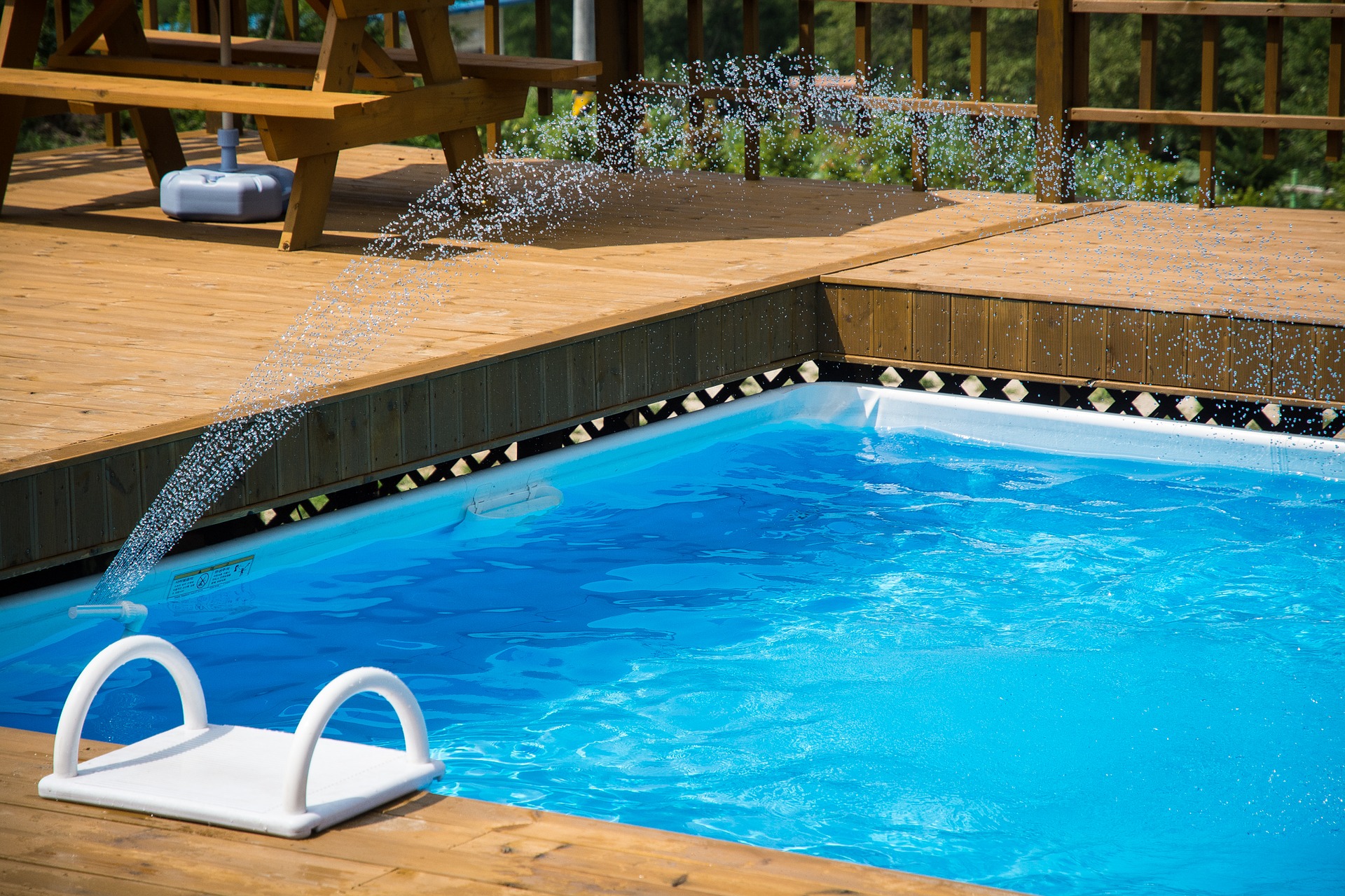
Congratulations on joining the pool owners club! You’ve worked hard to add this new, exciting feature to your backyard and are looking forward to the memories you and your family will make in the summers to come. Following your purchase, we recommend learning the basic components of a swimming pooland becoming familiar with the upkeep involved with this home project. We’ll answer all your questions so you can start enjoying life as a new swimming pool owner sooner.
First things first –
What pool equipment do I need?
- Filter: No matter what kind of pool you have, you need a solid filtration system to purify your water and remove debris
- Filter Media: This is the material that filters out the dirt in your tank. You have a choice between sand, cartridges or DE filters
- Pump: A key element, this pushes water from the drains to the filters and then back out the returns
- Heater: If you want to make optimal use of your pool into the colder weather months, this will keep your pool at a comfortable temperature
- Test strips: Using these once a week, the strips will indicate if you need to add chemicals to stave off algae or bacteria
- Pool cover: Save yourself any future frustration in dealing with fallen debris or leaves by having a sturdy pool cover handy for off-swim days
Now that you have the essentials covered, you’ll need a supply of cleaning tools to keep your pool in the best shape possible.
What do I need to keep a pool clean?
- Telescope pole: The most versatile of cleaning tools, you can vacuum, brush or skim any pool width as it extends and shrinks to fit your needs
- Vacuum hose and head: Working in conjunction with the telescope pole, you’ll be able to run the vacuum across the floor of your pool with enough pressure to suck away unwanted debris
- Filter cleaner: Help your filter do its job by regularly removing residue buildup from your filter
- Pool shock: This is extra-strength sanitizer for your pool to discourage algae growth and kill bacteria
Speaking of sanitizer, there are a few important chemicals that are vital to your pool’s health. Ensuring that these chemicals are balanced will prevent the infestation of bacteria and other natural contaminants.
What chemicals are needed to maintain a pool?
The answer to this question is a combination of chlorine, algaecide, bromine, alkalinity balancers, and pH increaser/decreaser. The sanitizers, chlorine and bromine, both work to break down bacteria but bromine is better served for pools with warmer temperatures like hot tubs or spas. Both of these sanitizers are vulnerable to the sun’s UV light, but adding a conditioner to chlorine helps slow down this process. Consider replacing chlorine tablets or liquid with a salt chlorinator, as salt-chlorinated water isn’t as abrasive on skin. Algaecides are copper-based treatments that stop algae in its tracks from growing on the surface, walls and steps of your pool. Alkalinity balancers and pH increaser/decreasers work differently to maintain the chemistry of your pool, and too high or low readings of either can leave room for lime or bacteria growth and make your pool water cloudy.
A lot of new swimming pool owners debate whether or not they should utilize outside services to help with regular pool maintenance and chemistry checks. The truth is, leaning on professionals is the best way to ensure the health and proper management of your swimming pool, completely stress-free.
Do I need a pool cleaning service?
Sunset Pools & Spas pool maintenance experts can customize services to fit your needs. Our all-inclusive package includes a pool opening and closing, two standard visits a week as well as all your necessary chemicals for one price. As an added bonus, we’re able to prep your pool before an event and conduct maintenance checks while you’re away. Learn more about how our pool maintenance experts can help.
You’ve enjoyed your new swimming pool all summer and as the days get colder, the time to consider closing your pool draws nearer. There are several steps you need to take before wrapping up for the season.
When/how should I close the pool?
- Close your pool when temperatures are consistently at or below 60 degrees
- Test your water’s pH level to check for any chemical imbalances
- Brush, vacuum and skim to remove any leftover debris and give your pool a clean surface
- Shock your pool to prepare for winterization
- Drain some of the water, but avoid draining all of the water so the structure doesn’t lift out of the ground during the winter
- Remove any objects in or around your pool
- Install a winter pool cover
When/how should I re-open the pool
- Depending on where you live, re-opening your pool while temperatures are consistently at or above 65 degrees is ideal
- Keep your cover on to keep any debris away as you clean your pool and filtration system
- Remove any plugs you installed before closing
- Depending on your filter, you may need to manually clean those out if they don’t have an automatic cleaning setting
- Top off the water level and turn on the filter
- Professionally test your water’s pH level and the expert will share what chemicals need to be adjusted
Although it might seem daunting, having your very own swimming pool is a great addition to a home. Sunset Pools & Spas is here to help you make the most of your swimming pool. Contact a member of our team to schedule a free consultation where we can help answer all your questions over the phone or in-person.
For the latest news and resources, check out our blog where we share tips and suggestions on how to design and maintain a pool for your lifestyle.